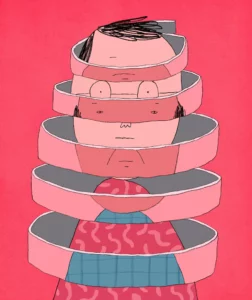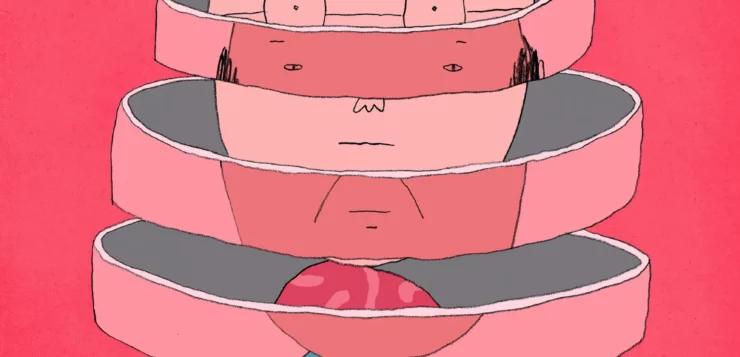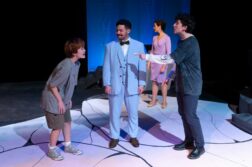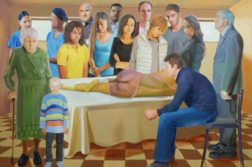
My father and I were in Starbucks about a year after he learned he had Alzheimer’s when he looked me up and down with his judge’s eye and said to the barista, “This young — ahem —man will have a latte.”
I laughed, not sure if he was joking. Until that moment, I had always been his daughter.
Granted, I was never a typical daughter. Growing up, I was a tomboy — or what Larry David would later call “pre-gay.” I had short, moppy hair and wore my older brother’s hand-me-downs; people often thought I was his little brother.
As an adult, I continued to be mistaken for a cisgender man. I have been called “sir” more times than I can count, which, frankly, I’ve never minded. I have generally been pleased with people reading me as male, even before my recent top surgery and the low-dose testosterone I started taking a few years back.
It soon became apparent that my father wasn’t joking four years ago when he referred to me as a young man. After that moment at Starbucks, he almost exclusively used “he/him” pronouns for me and even began referring collectively to me and my brother as his sons.
Of course, it has been bittersweet. Although he was technically forgetting who I am, there’s also something affirming about his honest assessment of my gender. It’s as if he’s been studying me each time with fresh eyes and taking me in anew. Paradoxically, I have felt seen.
This essay was published in Sunday’s NY Times “Modern Love” column.
Continue reading the original article here.






